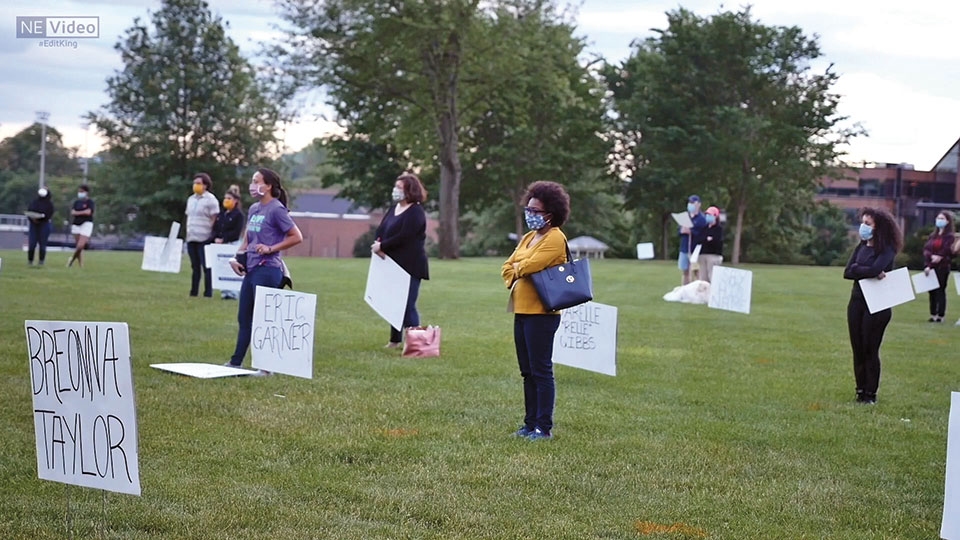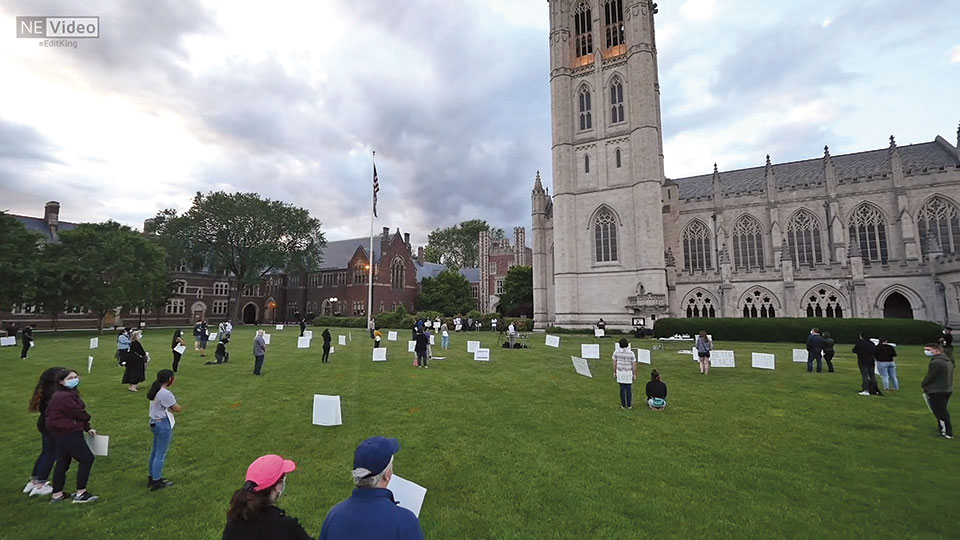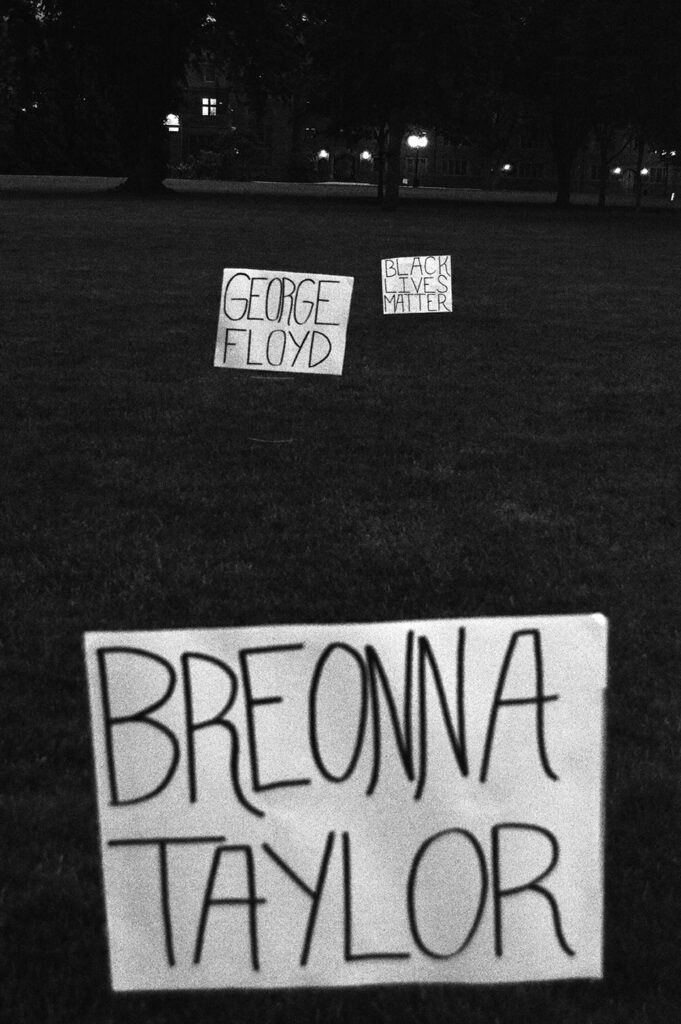
As protests against racism and police brutality filled the streets in this country and in locations across the globe, and as the @blackattrin Instagram account invited first-person perspectives from Trinity, the college continued to stand firm in its commitment to racial justice.
In a July 1 letter to the community, President Joanne Berger-Sweeney shared principles that guide her leadership, including an understanding that “higher education has the power to transform individuals and to transform society,” that “systemic change demands a willingness to dismiss with a ‘business as usual’ mentality,” and that “being intentionally anti-racist must be embedded in everything we do.”
In response to demands from Trinity’s Umoja Coalition—an organization of several Black student groups at Trinity (see below for a complete list)—as well as groups of alumni and friends of the college, Berger-Sweeney also laid out a plan for 10 initial commitments of actions to be taken as soon as practicable. These actions include requiring anti-racist, unconscious bias, and equity education for all campus members, trustees, and key volunteers; increasing diversity among faculty; and developing an anti-racist summit and supporting other anti-racist programming to improve the campus climate beginning in the fall.

On July 2, Trinity’s Board of Trustees followed Berger-Sweeney’s letter with a pledge to take several initial steps as well, including immediately identifying more Black candidates for membership on the board, especially focusing on Black women; looking for more board candidates among the Latinx and LGBTQAI+ community; and forming a Diversity, Equity, and Inclusion Committee among its standing committees. Trustees also have committed new gifts totaling $400,000 to renovate Umoja House and to fund a number of new initiatives of Trinity’s Office of Diversity, Equity, and Inclusion aimed at combating systemic racism at the college.
The letter from the board concluded: “This is a beginning. The first step is to express support and embrace those in our community who remind us that Black Lives Matter and that the work to change begins with examination of ourselves and the institutions and societies we inhabit. We commit ourselves to this journey, which is wholly consistent with the mission of Trinity College and all other institutions of higher learning that perceive themselves as a force for social good. Please join us in this effort.”
Berger-Sweeney noted in her letter that she remains hopeful for real and lasting change. “The Trinity community has my personal commitment that I will not let go of these challenges until we have changed for the better the experiences of people of color on our campus and improved racial justice and equity at this college. You can and should be part of the solution. I ask you to fight with me with Bantam spirit and pride for what our institution can and must be.”

Umoja Coalition organizations:
Athletes of Color Coalition (ACC)
Caribbean Students’ Association (CSA)
Imani Black Student Union (BSU)
Men of Color Alliance (MOCA)
Trinity African Students’ Association (TASA)
Trinity College Black Women’s Organization (TCBWO)
Trinity College Chapter Temple of Hip Hop
Editor’s note: At press time, the college was working to respond to demands shared on @trinsurvivors, an Instagram page dedicated to survivors of sexual violence and their fight for justice.
